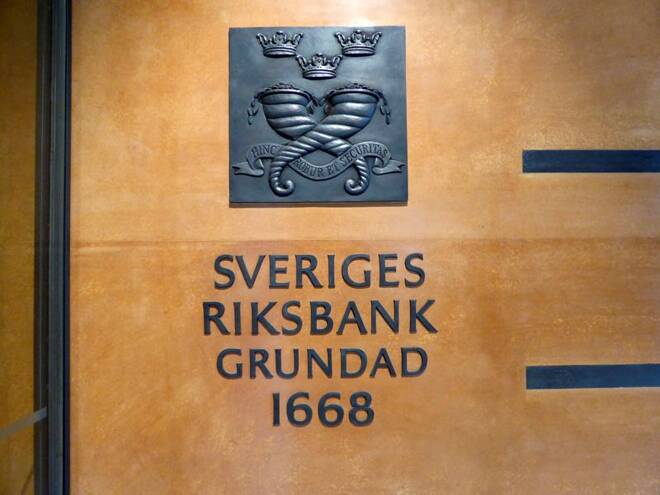Advertisement
Advertisement
Swedish central bank set to hike policy rate to 2.5% this week, poll shows
By:
By Simon Johnson STOCKHOLM (Reuters) - Sweden's central bank is seen hiking its policy rate by three-quarters of a percentage point this week to get a grip on soaring inflation, a Reuters poll of analysts showed on Monday,
By Simon Johnson
STOCKHOLM (Reuters) – Sweden’s central bank is seen hiking its policy rate by three-quarters of a percentage point this week to get a grip on soaring inflation, a Reuters poll of analysts showed on Monday,
The Riksbank has tightened policy three times already this year, most recently in September when it hiked by 1 percentage point to 1.75% – the biggest move in 30 years.
But core inflation continues to pick up speed and thirteen of sixteen analysts in the poll forecast a hike to 2.5% when the central bank announces it policy decision on Nov. 24.
“After high inflation in October, most indications point to a rate hike by at least 75 bps,” banking group SEB said. “However, a larger 100bps hike cannot be ruled out.”
At the most recent meeting in September, the Riksbank said it would need to continue to tighten policy, outlining a 50 basis points hike in November and a further move early next year.
The central bank forecast rates would peak at 2.5%.
Analysts in the poll saw rates peaking slightly higher. Markets expect rates to rise to around 3.25% in autumn 2023.
Households are already struggling with a cost-of-living crisis and the economy is expected to slow sharply – banking group Nordea expects a 2% contraction in GDP and the central bank a 0.7% fall in 2023.
House prices have fallen around 10% since their peak in spring and higher mortgage costs will increase the pain.
But rate-setters argue that by acting firmly now, they won’t have to take even more aggressive measures later.
Headline inflation eased slightly in October, dropping to 9.3% from 9.7% the previous month. But the dip was mainly due to lower electricity prices. Underlying inflation picked up to 7.9% from 7.4%, worrying rate-setters.
Furthermore, the European Central Bank (ECB) doubled its deposit rate to 1.5% at the end of October and promised more tightening in the months to come.
Riksbank Governor Stefan Ingves – who steps down at the end of the year – has said Sweden’s policy rate needs be a “respectful distance” higher than the ECB’s in order to bolster the Swedish crown and prevent a jump in imported inflation.
The ECB has two more policy meetings before the Riksbank’s next rate decision in February. Markets see the ECB’s deposit rate rising to 2% in December, but investors also see a fair probability of a bigger move to 2.25%.
(Reporting by Simon Johnson; editing by Niklas Pollard)
About the Author
Reuterscontributor
Reuters, the news and media division of Thomson Reuters, is the world’s largest international multimedia news provider reaching more than one billion people every day. Reuters provides trusted business, financial, national, and international news to professionals via Thomson Reuters desktops, the world's media organizations, and directly to consumers at Reuters.com and via Reuters TV. Learn more about Thomson Reuters products:
Did you find this article useful?
Latest news and analysis
Advertisement
